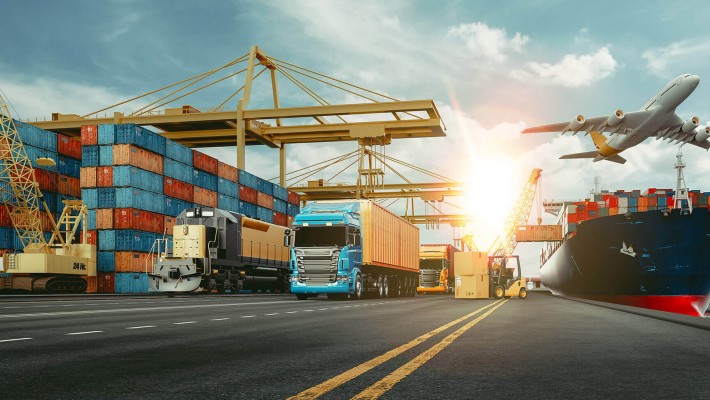Freight Forwarder Insights
Huin International Logistics Latest Articles
can you really afford to overlook the advantages of using a freight forwarder?
Understanding Freight Forwarding
Freight forwarding involves the meticulous coordination of transporting goods from one location to another using various freight carriers, including air, rail, highway, and waterway.
With the growing significance of global trade, the necessity for proficient management, regulation, and innovation in freight forwarding practices—be it by land, water, rail, or air—has become increasingly apparent.
Since its inception in 1948, the Canadian International Freight Forwarders Association (CIFFA) has recognized the imperative of ensuring the efficient and timely movement of goods across borders and around the globe.
Roles and Responsibilities of a Freight Forwarder
A freight forwarder serves as a crucial intermediary between the shipper and multiple transportation services.
They manage the intricate details of both international and domestic shipping, including ocean freight, rail transport, road transport, and air freight. Notably, a freight forwarder does not necessarily handle the physical movement of goods.
Freight forwarding services leverage their established relationships with various carriers to negotiate the most favorable rates for shipping goods. By evaluating multiple bids and selecting routes that offer the optimal balance of speed, cost, and dependability, they maximize the economy of shipping routes.
Freight forwarders manage the complex logistics involved in shipping goods between international locations, alleviating their clients of what would otherwise be a significant burden.
As Export.gov explains:
To navigate export documentation and meet shipping requirements, many exporters enlist freight forwarders to act as their shipping agents. These forwarders provide crucial advice and assistance in moving goods efficiently from one location to another. Their extensive knowledge of documentation requirements, regulations, transportation costs, and banking practices significantly simplifies the exporting process for many companies.
Finding a Freight Forwarder
The internet is a valuable resource for identifying a reliable freight forwarder. Consider exploring:
- The Port of Los Angeles
- Forwarders.com
- FreightGate.net
- Freightnet.com
Defining a Freight Forwarder
In essence, a freight forwarder is a company that arranges the importing and exporting of goods on behalf of clients. Their services typically include:
- Arranging storage and transportation of merchandise
- Tracking inland transportation
- Preparing shipping and export documents
- Providing warehousing
- Booking cargo space
- Negotiating freight charges
- Consolidating freight
- Offering cargo insurance and managing insurance claims
Freight forwarders often ship under their own bills of lading or air waybills, known as house bills of lading or air waybills. At the destination, their international agents handle document delivery, freight collection, and deconsolidation services.
Freight Forwarding in Logistics
As previously discussed, freight forwarding involves coordinating and shipping goods from one place to another.
Freight forwarders have specialized expertise in managing the logistics required to ensure timely arrival of goods, utilizing single or multiple carriers across air, sea, rail, or road transport.
Advantages of Using a Freight Forwarder
While not obligatory for importing or exporting goods, employing a freight forwarder can simplify the process substantially. Importing and exporting involve specific documentation and various regulatory requirements that differ by country. Therefore, many savvy importers and exporters collaborate with freight forwarders for logistical efficiency.
Freight forwarders’ deep understanding of shipping companies, documentation, and international customs laws saves significant time and helps avoid potential issues, all while ensuring reliable and cost-effective transportation of products.
A proficient freight forwarder not only negotiates tariffs and navigates customs regulations but also masters the requirements of shipping through land, sea, rail, and air. They also manage the risks and advantages of shipping nationally and internationally using cutting-edge information technology.
Overall, a freight forwarder proves to be an invaluable asset for companies involved in international transportation of goods, particularly when internal resources lack expertise in global shipping procedures.
Freight Forwarding and Customs Clearance
Mastering customs procedures is crucial for successfully shipping and delivering goods. Understanding and navigating customs regulations is a complex but essential task for any freight forwarder. They ensure that qualified personnel are on hand to provide customized and efficient shipping experiences for their clients.
Can Freight Forwarding Companies Handle B2B Shipping?
Absolutely.
For B2B companies, having a reliable shipping chain is essential to ensure cargo reaches business partners without issues. The right freight forwarder will ensure all required documentation is prepared and presented accurately at every stage of the shipping process.
